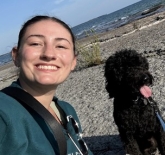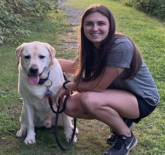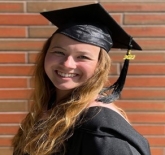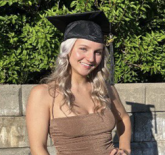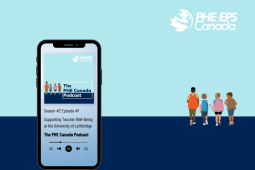PHE Canada Student Chapter - Ontario Tech University (OTU) Feature
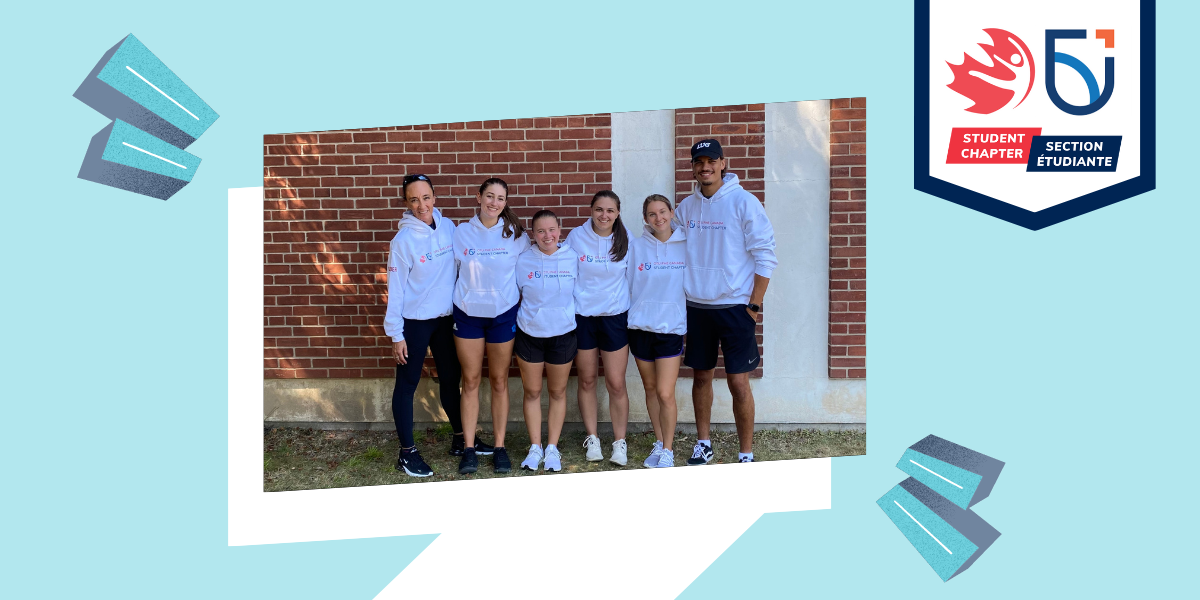
Getting involved on campus not only benefits your fellow students, but can be a big contribution to your success as well. As a pre-service educator, a great way to get involved at your institution is by being a part of a PHE Canada Student Chapter (PHECSC).
We interviewed the executive members at Ontario Tech University (OTU), to learn more about their experience since starting their Student Chapter in Fall of 2022. As these executive members have now graduated and are starting their professional careers, we want to wish them all the best and thank them for their dedication to inspire and grow the PHE pre-service educator community.
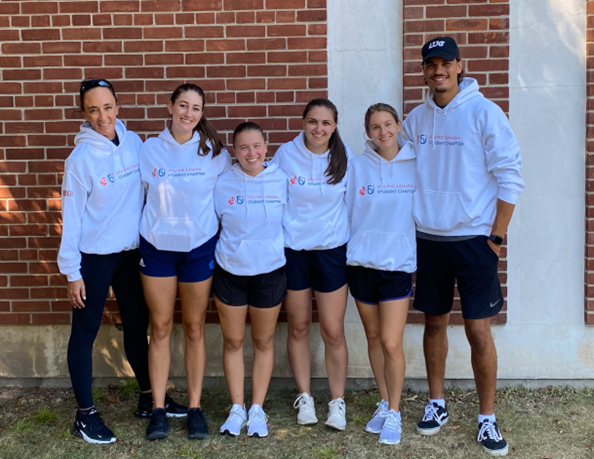
(Left to right: Dr. Wendy Barber, Danielle Bates, Meghan Homeniuk, Jenna Kastanas, Nicole Cannata, and Michael Palermo)
Who are the inaugural Executive Members that started the Ontario Tech PHECSC?
We are a group of second-year teacher candidates at Ontario Tech University (OTU). Danielle, Meghan and Nicole are returning students at OTU as they did their Bachelor of Health Science in Kinesiology here previously. Danielle also did her Master of Health Science in Kinesiology at OTU, completing research on teacher professional development and girl-friendly PE under the supervision of Dr. Serene Kerpan. Michael and Jenna both previously attended McMaster University, where they earned their Bachelor of Science in Kinesiology and Bachelor of Applied Science in Psychology, respectively.
Although we mainly collaborate on ideas and work cohesively on tasks and events, we also have five distinct roles that make the Chapter run smoothly. Danielle took on the role of President, which involved liaising between Physical and Health Education (PHE) Canada, Ontario Tech Student Union and Faculty of Education, and outreach efforts with other organizations. Michael had the role of Vice-President, which involved preparing materials and scripts for events and recruiting general members. Jenna is our trusted event coordinator, who works with organizations and the Ontario Tech Student Union to smoothly coordinate events, plan activities, and create to-do lists before events. Meghan is our creative social media coordinator, who monitors our social media and creates reels, posts and stories to keep the PHE and OTU community informed on all our events. Last but not least, Nicole was our dedicated treasurer, planning and organizing our fundraising efforts and managing our funds so we could host amazing events.
.jpg)
(Left to right: Jenna, Danielle, Michael, Meghan, and Nicole at the 2023 PHE Canada National Conference in PEI)
As pre-service educators, what are you passionate about?
As pre-service educators with backgrounds in Kinesiology and Psychology, our collective passion centers around challenging the marginalization of school health, PHE, and teacher well-being. In today's dynamic and rapidly changing educational landscape, the list of priority topics for professional development is expanding, and we are dedicated to ensuring that health and wellness remain at the forefront.
As PHE teacher candidates, we have encountered differing perceptions about PHE from the general public to our peers and even some faculty members at the university. Ensuring that PHE is respected, represented and taken seriously by all those in education is something that has driven our progress within the student chapter. Our advocacy for PHE and school health professional development is fueled by a deep passion for ensuring these crucial topics are not forgotten or overlooked.
We also all share a deep passion for inclusive education and pedagogy. As future educators, we envision PHE classes as welcoming spaces where every student can feel a sense of belonging.
How did you learn about our PHE Canada Student Chapters?
After completing my [Danielle] master’s thesis at OTU, I was well aware of the work PHE Canada has to offer and their programs. As I was browsing the website one day in August 2022, she saw a website about starting a Student Chapter. As I was about to enter the BEd Program at OTU, I reached out to Dr. Wendy Barber (Faculty of Education, OTU) and Ryan Fahey (Programs Lead, PHE Canada) to see what had already been started and if she could participate. I met with Ryan to learn more about PHE Canada’s vision for the program and worked with him to initiate the inaugural Student Chapter.
I was lucky enough to stumble upon 4 incredible peers during her first week of the BEd program who also had a passion for PHE and were looking to get involved with the broader PHE community. Together we worked with Dr. Barber to ratify the Chapter with the faculty and university, which allowed us to start providing events/opportunities for OTU teacher candidates.
Why did you want to start a Student Chapter at OTU?
After Danielle shared her background in research on teacher professional development, we all understood the value of professional learning for the implementation of quality PHE and were eager to be a part of a community that valued evidence-based practice, quality PHE and inclusive teaching methods. Furthermore, we know there is a knowledge and confidence gap between generalist and specialist teachers, and we wanted to bring all educators together to learn with and from each other. Knowing that PE professional development is rare within school boards, our student group saw this opportunity during pre-service education to gain as much knowledge and skills as possible before they have the stresses of teaching, including the management of their own classrooms, administrative duties, and meeting board/provincial expectations.
How did you start this Student Chapter?
Dr. Barber facilitated our engagement with the Faculty of Education to spread information about the Student Chapter. This involved the dissemination of mass emails and messages to our cohort of teacher candidates, apprising them of our available resources, upcoming events, and various opportunities.
Furthermore, Ryan Fahey played a pivotal role in the initiation of this Chapter by serving as a crucial collaborator. He provided us with the essential tools, resources, and framework from PHE Canada.
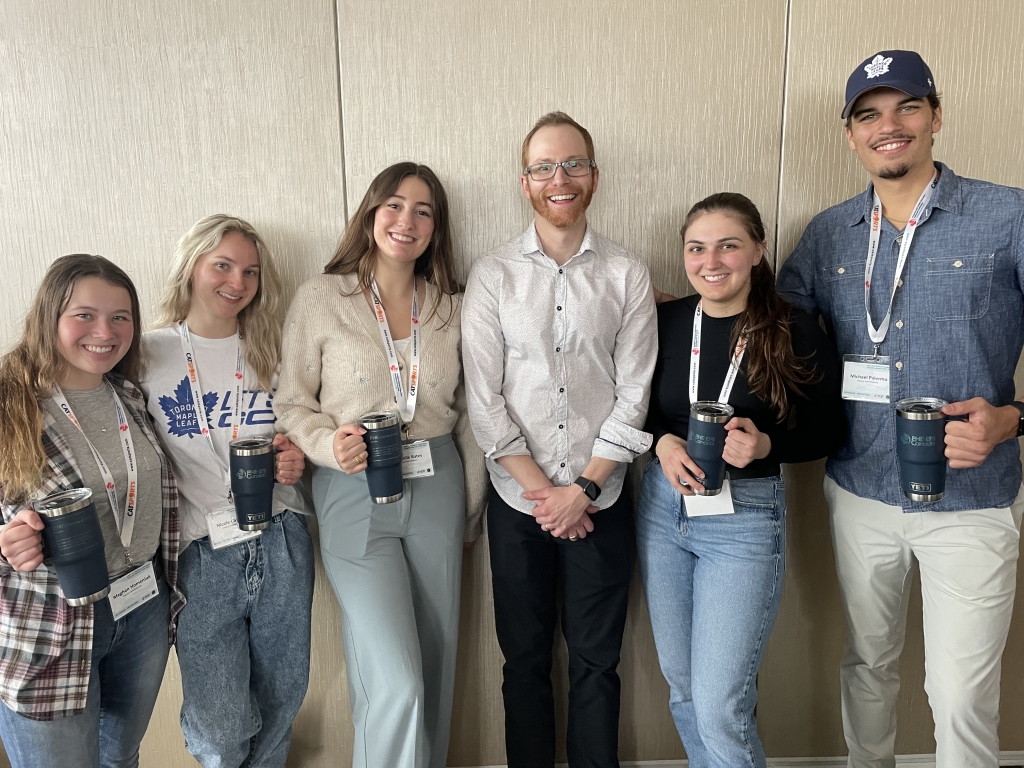
(Left to right: Meghan, Nicole, Danielle, Ryan Fahey, Jenna, and Michael at the 2023 PHE Canada National Conference in PEI)
Dr. Barber and Ryan empowered and guided us to create a comprehensive vision and plan for our Chapter. Their mentorship extended beyond mere support; they shared profound insights, expressed their enthusiasm, and, most significantly, had an unwavering belief in us and the initiatives we were undertaking.
We also could not have started the Student Chapter without the support of our peers and classmates, whom we are also lucky to call our friends. They have helped set up, facilitate, and attend events. Without their support, kindness, sacrifice, and enthusiasm, the Student Chapter would not be where it is today.
How has your involvement with the Student Chapter prepared you for your professional teaching careers?
Being actively engaged with the Student Chapter has greatly shaped our approach to quality PE and the cultivation of healthy school communities. Over the past year and a half, we have had the privilege of participating in many of the workshops and professional development opportunities we organized.
Furthermore, being involved in the Student Chapter has allowed us to network and meet PHE professionals across the province and nation. Talking with individuals from different backgrounds with varying expertise has allowed us to gain a deeper understanding of the issues facing PHE teachers today, what resources are available, and programs that exist for educators.
What were some of the highlight moments since the start of your Student Chapter?
A milestone for our Student Chapter was the inaugural professional development workshop in collaboration with OPHEA, led by Jen Powles, focusing on Daily Physical Activity (DPA). Despite initial apprehensions about attendance, a turnout of 25 teacher candidates spanning various teachable subjects (P/J, Math, Science, English) lifted our concerns. Our peers’ enthusiastic participation, particularly considering the demanding nature of our fast-paced and accelerated program, highlighted the significance of carving out time for PHE professional development amidst the pressures of practicum, academic responsibilities, employment, and family commitments. The palpable positive energy in the room fostered an environment where all teacher candidates were left with valuable insights and ideas, marking the inception of a promising relationship between OTU and OPHEA.
This event filled us with confidence to further organize a national virtual learning event for over 80 teacher candidates and 12 speakers from across Canada. Furthermore, we hosted a PHE session on orientation day for 220 year 1 teacher candidates in September 2023, where we talked about inclusive PA in schools, evidence-based HE, and DPA.
.png)
(First PD Event with OPHEA in January 2023 with all attendees)
From an executive standpoint, the highlight of our year was our participation in the 2023 PHE Canada National Conference in PEI. Notable highlights included Danielle's presentation of her master's research at the Research Forum, our student group's organization of Team Ontario for the Dance-off (securing a commendable 3rd place), interactions with esteemed PHE professionals, and exposure to evidence-based pedagogy and nationwide initiatives. The warm reception and encouragement from the community were particularly meaningful as, being pre-service teachers, we were nervous about navigating our role in the PHE community and shaping our identities as educators. The conference served as a transformative "aha" moment, solidifying our dedication to quality education and motivating us to champion comprehensive school health upon our return to OTU.
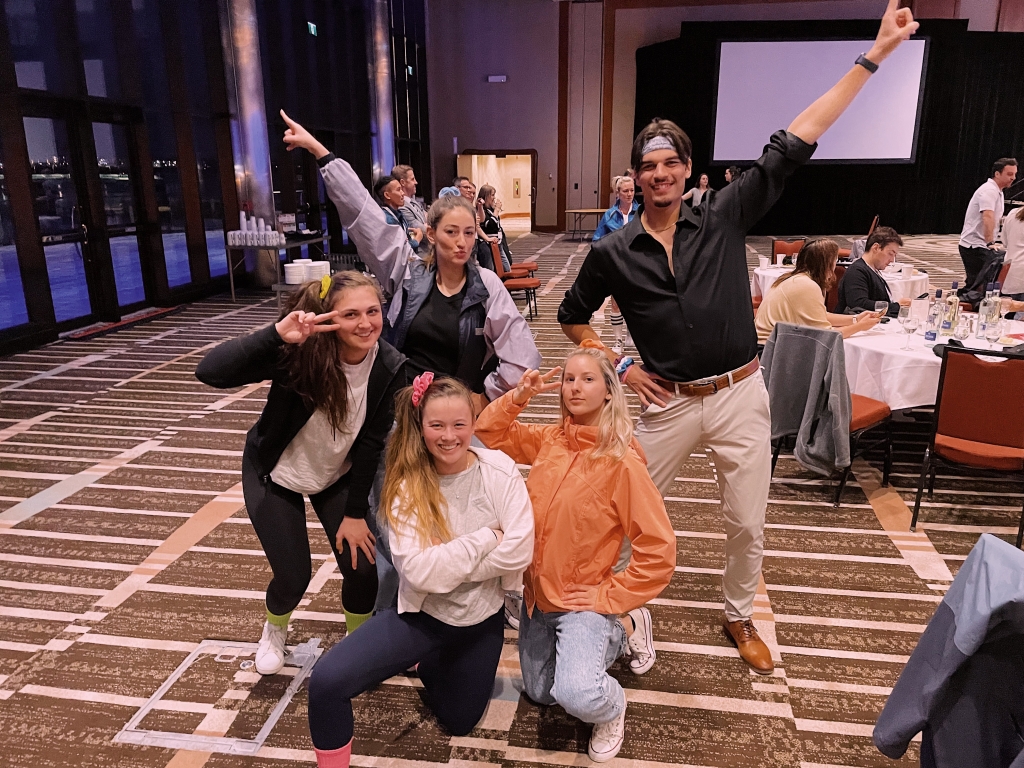
(Danielle, Michael, Jenna, Meghan, and Nicole at the 2023 PHE Canada National Conference Dance Off for Team Ontario)
Following five impactful days of learning amidst the gloomy East Coast weather, the executive team headed to Thundercove Beach for relaxation and exploration. A surreal and magical day unfolded as the sun and warm wind emerged on the deserted beach in early May. In that moment, we collectively acknowledged our profound gratitude for the shared experience of embarking on this journey of starting this Student Chapter together.
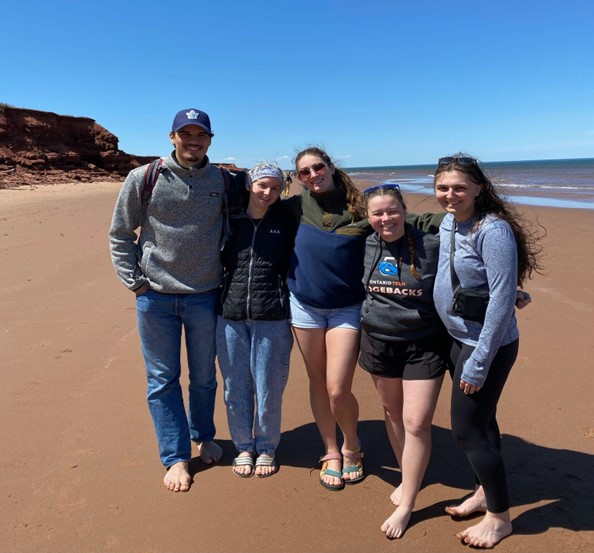
(Left to right: Michael, Nicole, Danielle, Meghan, and Jenna at Thundercove Beach in PEI)
After graduation, what do you hope the Student Chapter continues to contribute to and achieve?
We hope that our Student Chapter continues to connect pre-service teachers to the greater PHE community and creates a community of learners at OTU. Furthermore, we hope it inspires more pre-service educators to enter their careers as advocates and models for quality PHE programs and overall school health.
Why should other pre-service teachers start a PHE Canada Student Chapter at their institutions? How could their involvement with a PHE Canada Student Chapter support them as pre-service educators?
One of the most important takeaways from our involvement in the Student Chapter is establishing an incredible professional learning community. This community, consisting of like-minded individuals, serves as a platform for collaborative engagement. Within this network, pre-service educators have been willing to exchange experiences, offer advice, provide emotional support and share resources. We have learned that teaching is an emotionally and physically taxing career, and you can’t do it alone. We believe the friendships and relationships made through the Student Chapter will have long-lasting impacts throughout our careers. We highly recommend that other pre-service teachers start and get involved in a Student Chapter so that they can share both triumphs and challenges with their peers and, furthermore, enhance the learning experience of their Bachelor of Education program.
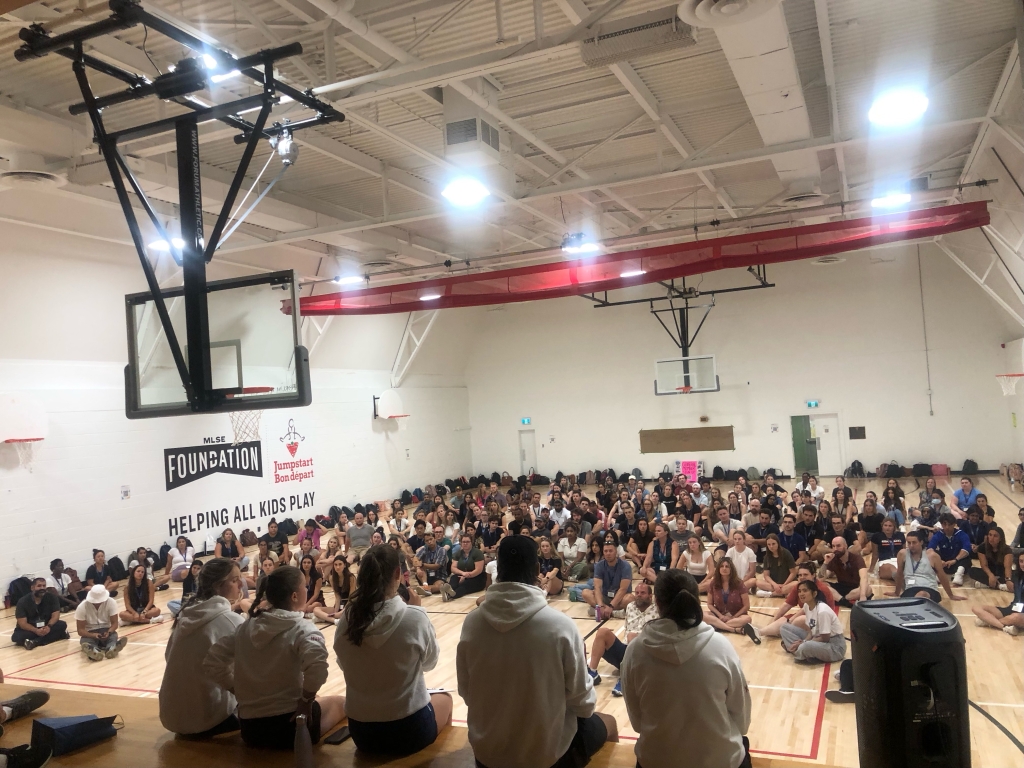
(ONTech Student Chapter speaking to teacher candidates during First Year Orientation Day on September 5th, 2023)
How do you see Student Chapters shaping the future for Physical and Health Education?
One of the key ways Student Chapters contribute to the future of PHE is by fostering a sense of community among emerging educators. The collaborative environment provides a platform for sharing best practices, exchanging ideas, and collectively tackling the challenges faced by those entering the teaching profession. This community-driven approach not only enhances the learning experience for pre-service teachers but also creates a ripple effect that positively influences the quality of education in schools.
Moreover, Student Chapters act as catalysts for change and progress within the broader education system. By advocating for the importance of PHE, teacher well-being, and evidence-based practices, these chapters are instrumental in challenging misconceptions and fostering a deeper understanding of PHE's critical role in students' development.
Student Chapters also serve as incubators for innovative ideas and approaches. They provide a space for pre-service teachers to stay informed about the latest research, evidence-based pedagogy, and educational policies. This knowledge-sharing not only empowers individuals but contributes to the overall improvement of PHE curricula and practices.
The impact of these Chapters extends far beyond our time as pre-service educators, laying the groundwork for a healthier and more active generation of students and a profession that continues to evolve with the changing needs of students and society.
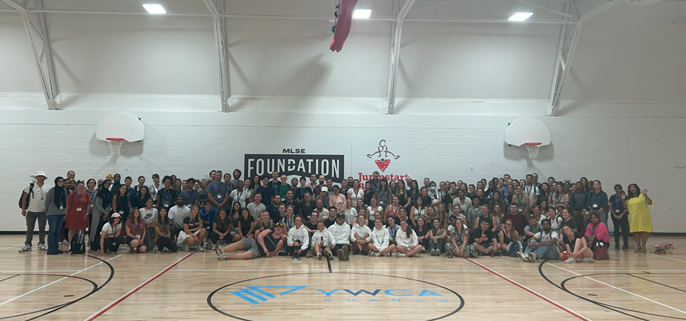
(First Year Orientation PHE Session at OTU on September 5th, 2023)

